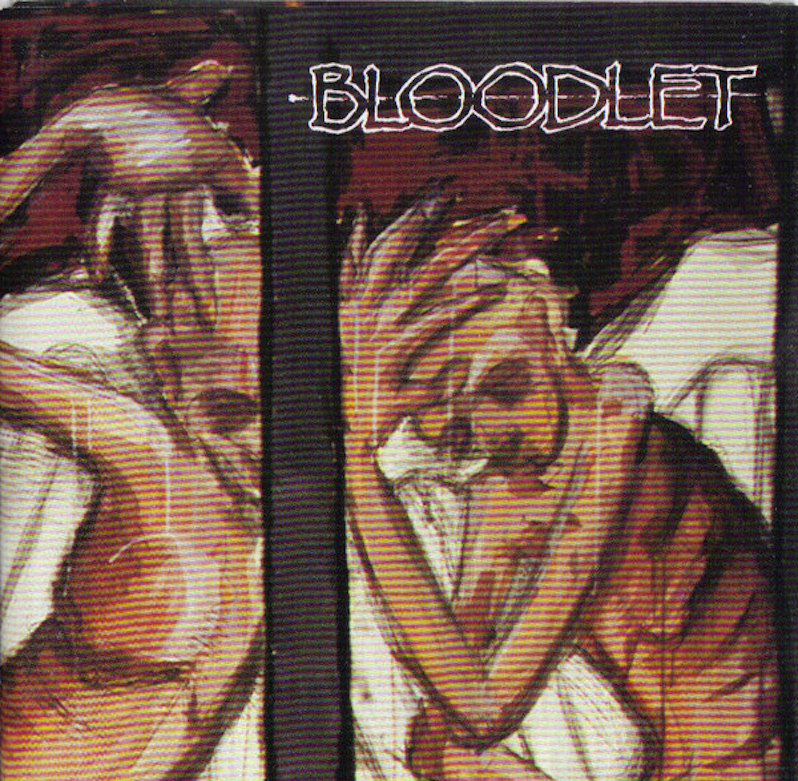Bloodlet’s ‘Entheogen’ took hardcore to darker places

Victory Records defined hardcore in the ’90s. The bands on the Chicago label’s roster broke ground for a modern crossover of metal and hardcore whose influence still ripples through heavy music today. Victory bands at the time were typically known for being straight edge, vegan and socially conscious, a metallic yet militant style of hardcore pervaded, though two early bands on the label, Integrity and Bloodlet, both proved to be exceptions to the rule. Where Integrity was chaotic and post-apocalyptic, Bloodlet tuned their guitars lower, with an aura of darkness emanating from them that gave them a more metallic sound than their labelmates.
Bloodlet formed in Orlando in 1992, an hour and a half away from the death metal scene in Tampa that gave rise to bands like Morbid Angel and Death. The five young punks quickly took to songwriting and released several 7-inch EPs in their early days, such as 1993’s Husk and their self-titled debut EP. It did not take long before the buzz around the band finally reached the ears of Victory, who released their 1996’s Entheogen. By the time it was released, critics in the underground hardcore scene had already begun to call the band “evilcore,” due to the darker sound that they harbored. Sonically, the dense distortion of their sound owed more to early sludge bands like Buzz*oven than more conventional hardcore. They also rarely burst into the punk like speed of hardcore and instead opted for a steamrolling throb not unlike that of fellow Floridians Obituary.
The riffs of songs like “Something Wicked” scald your ears with grooves that flow like hot lava. This highlights what made this band unique right from the jump, with a weird breakdown at the two-minute mark. Most their peers weren’t experimenting to this degree, which made the dynamic leaps into the punishing heaviness more effective. The throat bark of Scott Angelacos might be commonplace in sludge today, but when this album came out in 1996, the lines between death metal and hardcore were more firmly drawn.
From a songwriting perspective “Annulment,” is a concise punch at just over three minutes long, though a lot is packed into those three minutes, while not forsaking the bulldozing groove. When you listen to it today, it is immediately clear that timing was everything. A step ahead of where heavy music was headed, Bloodlet would be a more recognized name if Entheogen was released more recently, with bands like Eighteen Visions frequently citing them as an inspiration. That said, being a best-kept secret was a badge of honor for hardcore in the ’90s, and Bloodlet were no exception. I saw this band play a year after this was released in a basement—not a club. The tense grooves could have been marketed to more of a nu-metal fanbase at the time but Bloodlet were a far less commercial outfit.
The metal vibes of “Shell” merge with more of a hardcore stomp. The band is deliberate in their attack rather than defaulting to a one-two-three go! punk blast by manically stepping on the gas. There’s not a guitar solo within six feet of them, yet it’s clear the band are playing with a high level of proficiency in how the instrumentation weaves around passage in an almost jazz-like fashion. The vocals bob around the riffs and do not follow the straightforward drill sergeant phrasing more commonly employed at this time. The pace does pick up going into the nine-minute “The Triumph,” which ebbs back down with the guitar ringing out dissonant chords allowing things to simmer. Drummer Charles King might be the MVP on this album, as he’s the glue holding the song together, allowing the rest of the band to jam on out. The slithering shift of riffs is everything you could ask for from the band. The bass in the song’s final two minutes is also impressive, and it displays another example of how they stood out from the rest of the Victory Records roster.
The riffs of “Eucharist” could serve as Bloodlet’s calling card—impossible not to move your head to. If I was going to play a song for your average run-of-the-mill metalhead in an effort to convince them of this band’s greatness, that would be the one. That said, even a staunch Slayer fan might also be sold on the angry groove of “95.” The syncopation owes more to hardcore than metal, though Bloodlet straddle the fence between the two a great deal on this album.
Whenever I hear the last song on this album, “CPAI-76” I think how cool it could have been if Angelacos had used a few more effects on his voice throughout the album like he does here. Which he did a little more on the album that followed, 1998’s The Seraphim Fall—the second of a total of three albums released by the band before they would disband for more than a decade. But on Entheogen, Bloodlet don’t deliver a single moment here that isn’t inspired, charged or fueled by genuine emotion. A landmark moment in hardcore.
Support our Site—Subscribe to Our Patreon: Become one of our monthly patrons and help support an independent media resource while gaining access to exclusive content, shirts, playlists, mixtapes and more.

